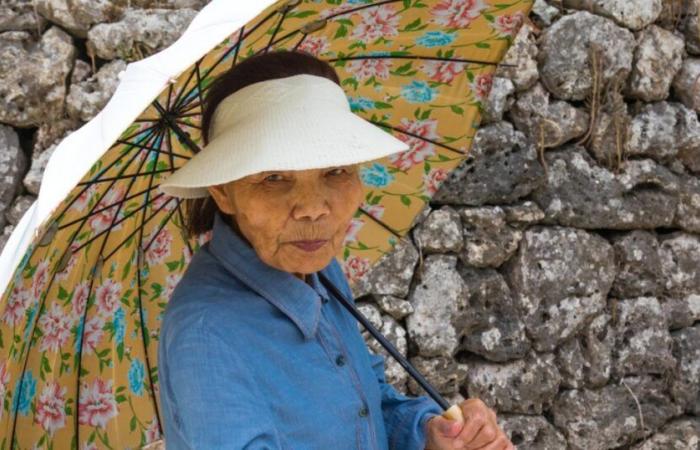Imprisonment rather than retirement. An edifying report in the heart of the country’s penitentiary centers published on the site of CNN January 18, 2025 reveals that retired Japanese people – 29.3% of the Japanese population is 65 years old and over, according to a government report published in September 2024 – and in particular women, many to wish to end their days in prison, in order to escape loneliness and precariousness.
A more comfortable life in prison than outside
Journalists Jessie Yeung, Hanako Montgomery and Junko Ogura went to Tochigi’s prison for women, near Tokyo in September 2024. They met an 81 -year -old Japanese woman there, who is in her second stay behind bars – the first having taken place when it was around sixty years old.
“Maybe this life is the most stable for me,” she explained to them. The octogenarian interviewed is far from the only one in this case.
Yoko (loan name used to preserve the anonymity of the witness), 51, incarcerated for the fifth time in this establishment, deplores an increasingly aging population.
Even more surprising, journalists were able to interact with Takayoshi Shiranaga, one of the guards of Tochigi prison. The man explains that some would be ready to pay “20,000 or 30,000 yen (130 to 190 dollars) per month (if they can) to live here forever”. Before adding: “There are people who come here because it’s cold, or because they are hungry.”
“At this point, it looks more like a retirement home than a prison filled with convicted criminals,” comments the goalkeeper who notes the growing number of elderly prisoners.
Read
“To the test” with Frankie Wallach: France 2 highlights the precariousness of single mothers with a poignant fiction
Financial precariousness and loneliness
On site, prisoners have access to regular and free care, meals, and above all, to the company. What is sorely lacking outside, shares the 81 -year -old woman. She confides that her 43 -year -old son with whom she lived, saying regularly to her: “I would like you to go”.
-In addition to loneliness, it was also the financial precariousness in which she was who pushed her to steal food, which was why she was incarcerated. “If I had been financially stable and if I had a comfortable lifestyle, I would certainly not have done it,” she concedes. At the time of her arrest, she lived with a “very small” pension of less than $ 40 every two months.
Deprived, she admits having let her think that “it is useless that I live” or, “I just want to die”. During his meeting with the three journalists of CNNhe only had a month left to Tochigi before being released. She then confessed to them to have “afraid of the way” in which her son could welcome him and “perceive” him when she left.
Government reaction
Like this 81 -year -old woman, in 2022 in Japan, more than 80% of elderly prisoners are imprisoned for theft, according to figures from the Japanese government. The organization of economic cooperation and development reports that 20% of Japanese over 65 live in poverty.
A figure that challenges: for the 38 other member countries of the organization, the average is 14.2 %.
According to CNNin 2021, the Japanese Ministry of Social Affairs had declared everything to best support vulnerable elderly people and set up community support. The government would also be examining proposals to make housing aid accessible to the greatest number, the chain says. Efforts which, he says hoping, should make it possible to stem and reduce elderly overcrowding in prison establishments.
Read
Report: in SOS Friendship, volunteers listening to loneliness and “on the side of life”






